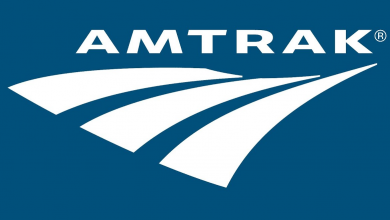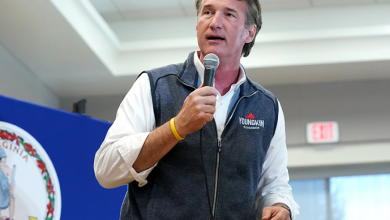Lonely wild horse finally finds her harem on Outer Banks
COROLLA, N.C. — It’s a rite of passage for all young wild horses living on the northern reaches of the Outer Banks — the time comes when they must strike out on their own.
For most fillies and colts, finding a new harem, as family units are called, takes no time.
But that wasn’t so for Alma, a 2-year-old living with her parents’ harem on a more remote, less-populated section of the beach. This spring, the filly was often seen wandering alone or trying to make friends with humans.
In June, the Corolla Wild Horse Fund, which manages the herd of about 100 wild Spanish mustangs living north of Corolla, started receiving “tons of calls” about Alma, who had wounds on both sides of her face and seemed lost. Caretakers consulted with the fund’s veterinarian, who said the wounds, probably bites, appeared to be healing well and were nothing to worry about.
Earlier this year, Alma was pushed out of the harem she wasborn into, said Meg Puckett, the fund’s herd manager. The stallion, most likely her father, became aggressive toward her and would not let her get close to the rest of the mares.
“Alma is often alone on the beach and to human observers seems lost, which is understandably concerning,” Puckett wrote on Facebook. “It may be difficult to see, but we have to remember that these are wild horses behaving naturally. It’s what eventually happens to each and every young horse, though Alma’s situation is a little unique.”
Normally, a young mare pushed out of her harem would be quickly scooped up by another stallion, but Alma’s family lives in an area with a low horse population.
“There just aren’t any other harems close by for Alma to assimilate into,” Puckett said.
Lonely Alma eventually began heading north, where more horses live, and herd caretakers crossed their fingers she would find a welcoming new family. Being alone, though, she became used to humans and began approaching and following people.
At the time, the herd’s caretakers urged anyone who encountered Alma to shoo her away.
“Get into your vehicle, wave your arms around to scare her away from you, and definitely do not pet her or give her any positive attention at all,” Puckett’s Facebook post said. “We want Alma to be completely disinterested in humans — afraid of them, even. She is in a very vulnerable position right now, where she is young, impressionable, and unfortunately alone. We want her to be seeking out the company of other horses, not people.”
By early July, Alma was still wandering alone, with seemingly no destination. But after a few weeks, she finally found her tribe, joining with a new group, including her grandmother, Shala, according to the horse fund.
“The wounds on her face are healed, she’s in excellent physical condition, and now she’s got friends, too,” Puckett wrote in a Facebook update. “There’s a lot to be said for trusting the horses, trusting nature, and doing what’s best even when it’s hard on our human emotions. Excited to see what the future holds for this special mare!”
For copyright information, check with the distributor of this item, The Virginian-Pilot.




